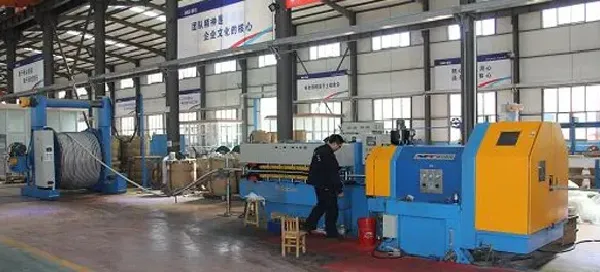Nov . 10, 2024 16:59 Back to list
Understanding the Uses and Benefits of Single Wire Cable in Modern Applications
Understanding Single Wire Cables A Comprehensive Guide
In today's fast-paced technological landscape, the importance of effective electrical systems cannot be overstated. A crucial component in these systems is the cable used for signal and power transmission. Among the various types of cables, the single wire cable stands out for its simplicity and efficiency. This article delves into the characteristics, applications, advantages, and considerations of single wire cables, providing a comprehensive overview for anyone interested in understanding their role in electrical engineering.
What is a Single Wire Cable?
A single wire cable consists of a single conductor, which may be made from copper or aluminum. This cable is designed to carry electrical power or signals from one point to another without the complexity of multiple wires. The insulation around the conductor helps to prevent short circuits and protects against environmental factors. Single wire cables are often utilized in simpler applications where minimal connectivity is needed, distinguishing them from multi-core cables, which contain several insulated conductors within a single outer sheath.
Characteristics of Single Wire Cables
1. Simplicity The single conductor structure makes these cables straightforward and easy to understand. This simplicity can lead to easier troubleshooting and installation.
2. Lightweight Compared to multi-core cables, single wire cables are generally lighter and more flexible. This makes them suitable for applications where weight is a critical factor.
3. Cost-Effective Without the additional materials required for multiple conductors, single wire cables can be more cost-effective to produce and purchase.
4. Variety of Insulation Options Single wire cables can be insulated with various materials, including PVC, rubber, and thermoplastic elastomers. The choice of insulation can impact the cable's durability, flexibility, and temperature rating, making it adaptable to different environments.
Common Applications
Single wire cables are used in a multitude of applications across different industries
1. Electrical Power Distribution They are often used in power distribution systems, especially for connecting appliances and fixtures in residential settings.
2. Automotive Industry In automotive wiring, single wire cables can connect various components, such as sensors and lighting systems, simplifying the wiring process.
single wire cable

4. Electronic Devices Many electronic devices utilize single wire cables for internal connections, allowing for effective signal transmission with minimal interference.
Advantages of Single Wire Cables
The primary advantages of single wire cables include
- Easier Handling With their lightweight and simple structure, single wire cables facilitate easier storage and handling during installation.
- Reduced Bulk In applications where space is limited, single wire cables provide a less bulky option, making them easier to integrate into confined areas.
- Tailored Solutions Maintaining a single conductor allows for customization and flexibility in various applications, making these cables suitable for both standard and specialized uses.
Considerations When Using Single Wire Cables
While single wire cables offer several benefits, certain considerations must be kept in mind
1. Current Capacity Single wire cables typically have a lower current-carrying capacity compared to multi-core cables. Therefore, careful calculations are needed to prevent overheating or failure.
2. Signal Interference In applications where signal integrity is crucial, a single wire cable may be susceptible to interference, necessitating the use of shielded cables or other protective measures.
3. Limited Connectivity Since they consist of a single conductor, these cables may not be suitable for applications requiring multiple connections or more complex circuitry.
Conclusion
In summary, single wire cables serve as an essential component in various electrical and electronic applications. Their simplicity, cost-effectiveness, and lightweight nature make them ideal for numerous uses, from power distribution to automotive wiring. However, understanding their limitations is crucial for ensuring optimal performance in specific scenarios. As technology continues to evolve, the role and design of single wire cables will undoubtedly adapt, but their fundamental advantages will remain relevant in a diverse range of applications.
Share